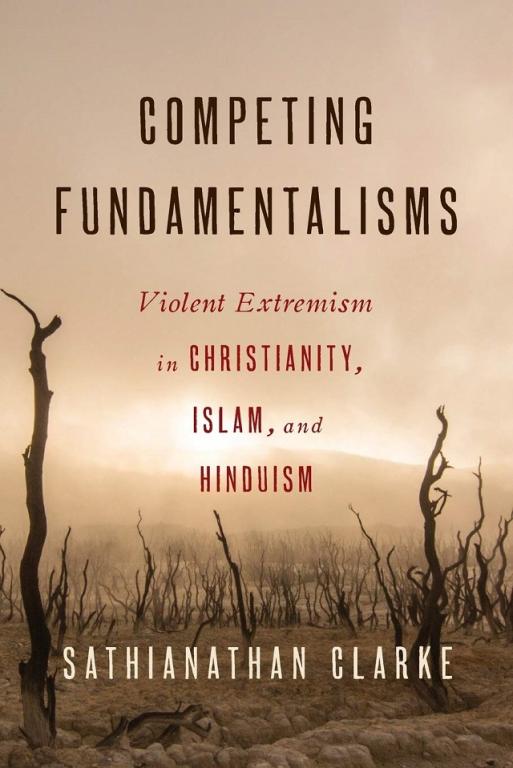. . . and the Similar Sociologically Proper Use of Pope Benedict XVI and Pope St. John Paul II

This is a follow-up post to Kwasniewski vs. Pope Francis Re “Fundamentalism” (Pope St. John Paul II and Pope Benedict XVI Fully Concur with Pope Francis) [12-9-20]. John Estes made a complaint in the combox. His words will be in blue.
*****
Dave. Just to be clear, you consider my fundamentalist family members (conservative, premillennial dispensationalist protestants) to be your fellow brothers in Christ?
Of course. That’s a different definition of the word; not the one the pope is using. This is the whole point. Words [almost always] have more than one definition.
No one denies that words have more than one definition. The point is why use the Pope’s “definition” that a “fundamentalist” is a violent person who worships Baal?
“Religious fundamentalists” is a well-known category in religious sociology. You are the one who shows confusion, and want to blast three popes who make the same arguments.
I know of no definition which says a “religious fundamentalist” is a Baal worshiper, implicitly violent, wants to persecute people, are idolaters, etc. (See the wiki page on it.) I just checked the Oxford Dictionary of Sociology and it doesn’t define “fundamentalism” the way Francis does.
That three popes are using the term in a non-traditional way doesn’t make it right. As I pointed out, they are probably ignorant of the historical meaning of the term. You should interact with Olson’s piece. He was raised a fundamentalist and has family who are. He knows what he is talking about.
Let me give an example. I used to use the term “cult” to refer to JWs, LDS, and some other groups. It then dawned on me that this isn’t helpful because it gives the appearance of lumping these groups with cults such as Jim Jones. That plenty of people use the term the way I used to use it doesn’t mean I was right. If you are trying to reach a JW with the Gospel it doesn’t help to implicitly lump them with violent cults.
***
Your assumption is that there are bunch of definitions of “fundamentalism” and the pope has picked one. There is no definition of fundamentalism that includes violence, Baal worship, etc. I challenge you to find one.
Sure: Encyclopaedia Britannica, “Fundamentalism”:
Fundamentalism, type of conservative religious movement characterized by the advocacy of strict conformity to sacred texts. Once used exclusively to refer to American Protestants who insisted on the inerrancy of the Bible, the term fundamentalism was applied more broadly beginning in the late 20th century to a wide variety of religious movements . . .
In the late 20th century the most influential—and the most controversial—study of fundamentalism was The Fundamentalism Project (1991–95), a series of five volumes edited by the American scholars Martin E. Marty and R. Scott Appleby. Marty and Appleby viewed fundamentalism primarily as the militant rejection of secular modernity. They argued that fundamentalism is not just traditional religiosity but an inherently political phenomenon, though this dimension may sometimes be dormant. Marty and Appleby also contended that fundamentalism is inherently totalitarian, insofar as it seeks to remake all aspects of society and government on religious principles. . . .
A third objection is that the significant negative connotations of the term fundamentalism—usually including bigotry, zealotry, militancy, extremism, and fanaticism—make it unsuitable as a category of scholarly analysis. On the other hand, some scholars have argued that the negative connotations of the term aptly characterize the nature of fundamentalist movements, many of which seek the violent overthrow of national governments and the imposition of particular forms of worship and religious codes of conduct in violation of widely recognized human rights to political self-determination and freedom of worship.
Marty’s work is “controversial” but it does show that there is a scholarly usage similar to the three popes’ usage, and this article also shows that “the term fundamentalism was applied more broadly beginning in the late 20th century.” Again, like all words, the range and application of this one is evolving. The article also refers to Jewish, Islamic, Hindu, and Sikh fundamentalism: some forms of which is linked to “terrorism”, and others not (as it makes clear).
The pope said, “Practically speaking, they transform that God into a Baal, an idol.” That’s not a claim of literal Baal-worship. To find that, you have to go to Lutheran confessional sources in the Book of Concord, which classify the Catholic Mass as “Baal-worship”: apparently meaning it literally: as I have alluded to more than once in my writing.
I have relatives who call themselves “fundamentalists.” They went to Bob Jones University. They are fundamentalists in the more traditional sense of the term: premillenial dispensationalists. Say what you want about US fundamentalists, to describe them as “So in the name of this ideological god, they kill, they attack, destroy, slander. Practically speaking, they transform that God into a Baal, an idol . . .” is horrible if Francis knows what fundamentalism is in the US context.
Hopefully, so to speak, Francis doesn’t know what fundamentalism means. For al I know he’s never heard of premillenial dispensationalism or Bob Jones University.
According to the Church, fundamentalist Baptists are Christians and brothers to Catholics.
I think the problem here is the Pope using a term that is used by the left to attack people. It would be like the words “homophobia” or “Islamophia.”
It’s not just Francis, but his two predecessors who used it in the same way. It’s not difficult to understand what they mean in context.
But for all I know his predecessors didn’t know what “fundamentalism” means in the US context. But what if they did, should they have used the term instead, say, “fanaticism.”
***
What if I said, “geneticists are bad people because they believe in sterilizing people, preventing low IQ and high IQ people from marrying, etc.” What I say may be valid “in context.” But the fact that I’ve confused genetics and eugenics doesn’t let me off the hook. I should know what I’m talking about before I call names.
***
What if the pope were to visit the US and was going to give a sermon criticising “fundamentalism” and someone told him that Fundamentalists in the USA are conservative protestants. Would you approve of the Pope attacking “fundamentalism” or at the least making it clear that he is not attacking conservative protestants?
I think it would be good to clarify in that context; yes. In the meantime, the word can be used in different ways. And like most sociological categories (especially religious ones), the usage is confusing in practice. I know: just look at all the hell I get for my term, “radical Catholic reactionary”: which has a perfectly legitimate and sensible rationale.
See also:
“Overcoming Violent Fundamentalism: Religious Extremism Will Not be Defeated by a Primarily Military Response”, Jim Wallis, Sojourners, July 2013.
“Fundamentalism: An Enemy of the Common Good”, Fr. Gerald A. Arbuckle, SM. PhD, Health Progress: Journal of the Catholic Health Association of the United States, Nov.-Dec. 2016.
“Will the real fundamentalists please stand up?”, May 28, 2018.
[see much more similar material in a Google search]
***
Photo credit: Amazon page for the book, Competing Fundamentalisms [Amazon.com]
***













